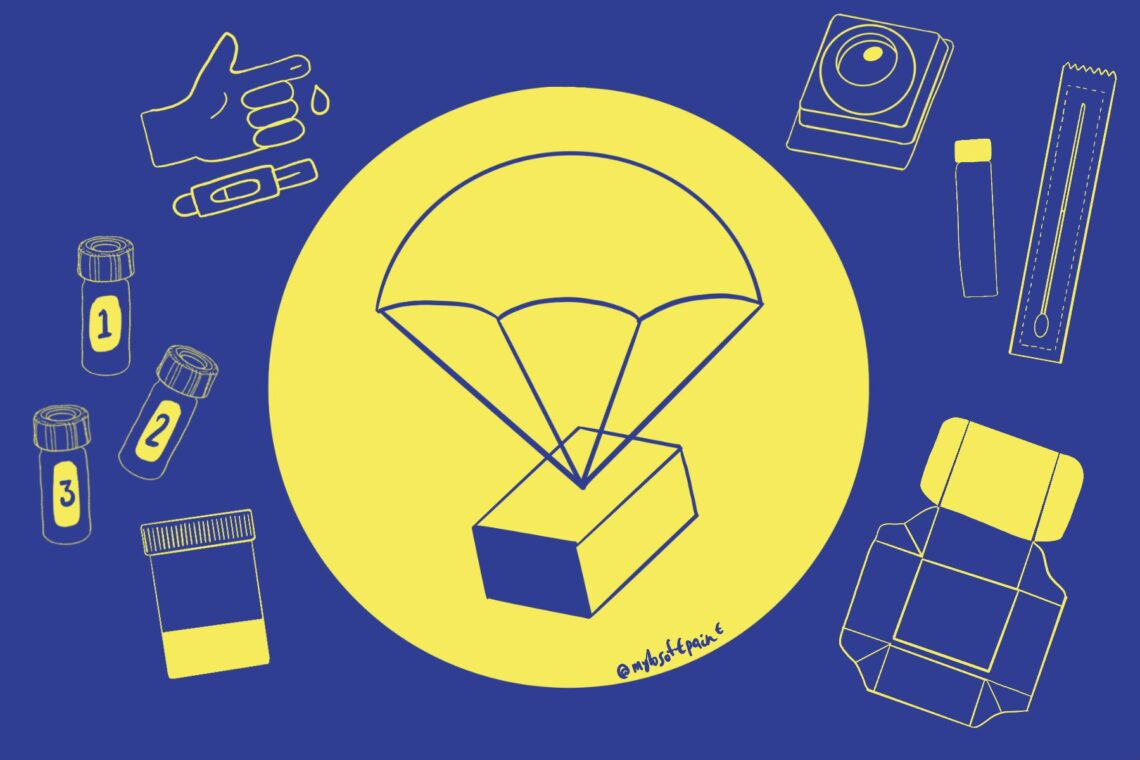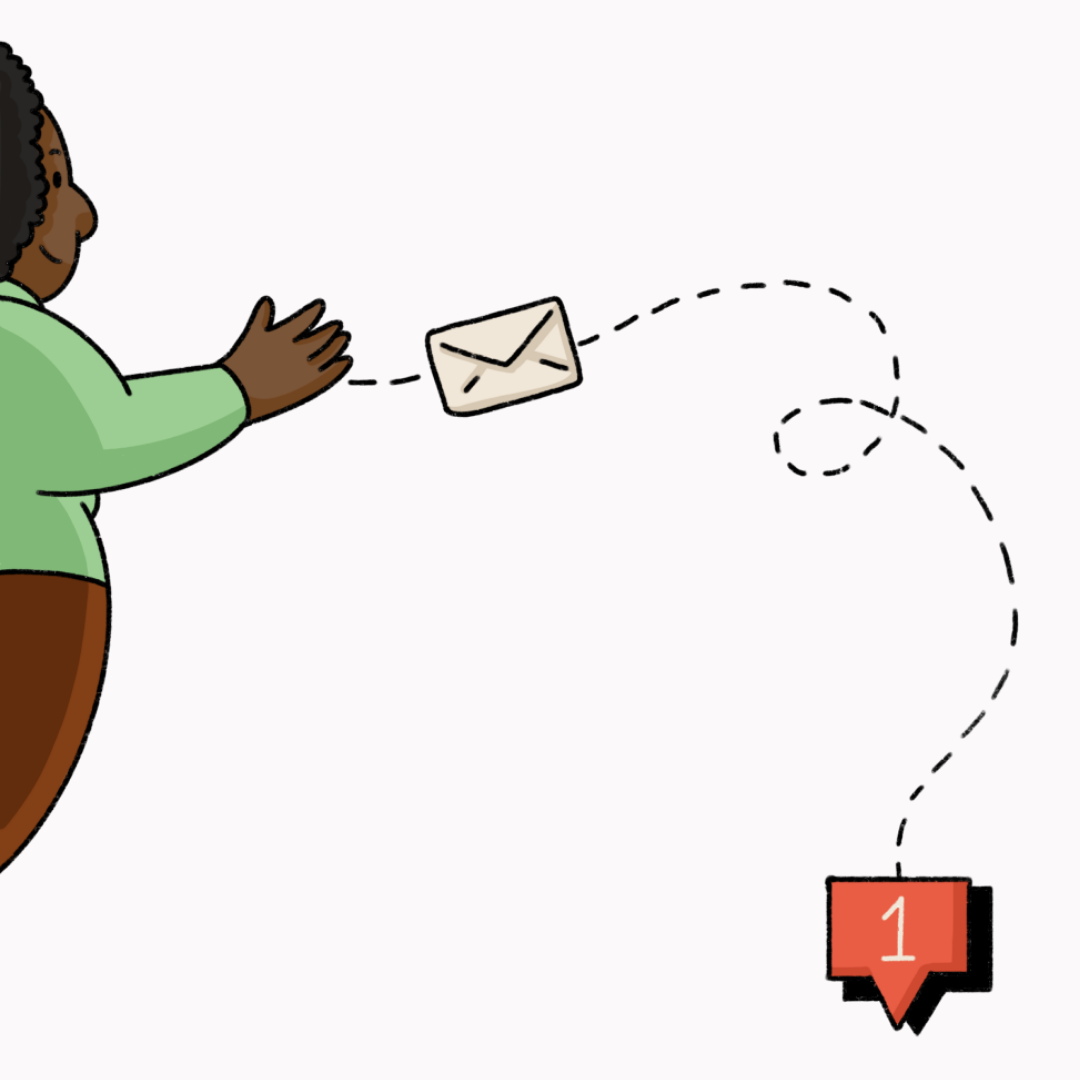Written by: Patrick O’Byrne (he/him) NP PhD
Edited by: Lydia Collins (she/her).
Canadians face many barriers to sexual health services, such as scheduling, travelling to and attending in-person appointments, cost of public transport, and additional steps including going to a lab for specimen collection and/or drop-off. This can be especially difficult for equity deserving communities, many of whom lack access to primary care such as nurse practitioners or family physicians. GetaKit offers one solution to many of these barriers by offering testing for sexually transmitted infections (STIs) that can be done from home.
What is GetaKit?
GetaKit is a University of Ottawa study that evaluates an online assessment and mail-out system for standard-of-care sexual health services that offers full testing for HIV and other STIs based on clinical guidelines. This means that GetaKit offers validated testing in a new way, and the study focuses on evaluating this new way of linking people to care.
Available testing includes laboratory-based oral and/or rectal swabs and urine testing for gonorrhea and chlamydia, as well as serology for syphilis, hepatitis C, and HIV. HIV self-testing is also available across Ontario, and STI testing is available in select locations in Ontario, including North Bay, Hastings and Prince Edward Counties, Kingston, Frontenac, Lennox and Addington Public Health, Leeds, Grenville and Lanark, Ottawa, Peterborough, Renfrew, Windsor, Peel, Middlesex London, and others.
Participants are eligible for STI testing and/or HIV laboratory testing if they are 18 years old or older, live in Ontario, have private or public health insurance, are willing to go to a lab for testing, and are sexually active, or use injection drugs. Participants are eligible for HIV self-testing if they are 16 years old or older, HIV negative or unsure of their status, sexually active and/or use injection drugs.
To learn more about GetaKit’s history in HIV self-testing, read HIV Testing Made Accessible with GetaKit Self-Test on SexMed.
How does STI testing with GetaKit work?
Individuals visit GetaKit.ca where they review and accept the study consent form and create their GetaKit accounts by validating one method of contact (either a mobile number or an email). Participants are asked to complete the STI/HIV risk assessment and, in-line with current clinical guidelines, the GetaKit system’s algorithm recommends testing based on their responses. At the check-out page, participants can opt-in or out of each individual test. Orders that include testing for STIs are reviewed and approved by a GetaKit nurse. If approved, the requisitions and relevant testing materials are shipped to the participants who will be notified via text that their tests are on their way. A print-at-home and a digital delivery option to local laboratories allow participants to do same-day if their order does not include physical testing materials (e.g. self-test and/or swabs) because either they opted-out of these tests or they were not clinically indicated.
Once the participant receives their testing and support materials, including instructional paper and video guides, they can bring their requisitions to a local lab. Depending on the test, the turnaround time (TAT) for results is typically 1-2 business days for urine, 4 business days for oral and rectal swabs, and 3-7 days for blood testing. When the results are ready, a nurse from the GetaKit team reviews and releases them to the participant through their online account, which triggers an alert sent to the participant to login and review their results. If follow-up is needed (e.g., re-testing or treatment), a member of the local public health unit will reach out to initiate next steps. Participants with negative results receive re-test reminders based on clinical guidelines.
Call for Equitable Access to Sexual Health Services
There are numerous barriers to equitable sexual health services. Digital innovations like GetaKit offer multiple testing modalities (e.g., self-testing and validated self-collection swabs in non-clinical and at-home settings), as well as standardized availability of culturally competent treatment and prevention services (e.g., multilingual, as well as Indigenous traditions and medicines).
This is especially important for people accessing testing for the first time. According to GetaKit findings, young gbMSM (Gay, Bisexual, and other Men who have sex with Men) and non-White ethnoracial groups face more barriers when accessing traditional routes to HIV testing. You can learn more about this, how GetaKit fills a gap, and the importance of anti-bias learning for clinicians here.
With the mandate to get STI testing into the hands of the people who need it most, GetaKit works closely with community-based organizations and public health units to promote online access to STI testing that is culturally competent. Partnerships with public health units have been instrumental in facilitating treatment and re-testing with GetaKit.
Online standard-of-care sexual health services can work for many, but not everyone. GetaKit is mindful that barriers to accessing STI/HIV testing online and completing tests from home exist for people with disabilities. We hope, however, that this resource works for some and helps create appointment spaces in bricks-and-mortar clinics, which may be better suited to provider services.
Some of our community-based organization partners include The Black Coalition for AIDS Prevention (Black CAP), the AIDS Committee of Ottawa (ACO), MAX Ottawa, and the AIDS Committee of Toronto.
Building Capacity Together
STI testing is just one aspect of equitable health services. A combination of approaches, including prevention, is key. For instance, single-use sterile equipment for drug use, HIV pre-exposure and post-exposure prophylaxis (all ideally for free), treatment of STIs which exacerbate HIV transmission, and re-test reminders. From this list, GetaKit is proud to offer comprehensive STI testing, HIV self-testing, and follow up, and to build capacity with public health units without overburdening scarce resources.
GetaKit is Growing
From April 2020 to present day, GetaKit has gone through many growth spurts. From HIV self-testing being piloted in Ottawa to expanding across Canada, to launching a Canada-wide pilot for COVID-19 self-testing, to STI testing being piloted in Ontario in present day, GetaKit is excited about what comes next. We’ve said it before and we will say it again, when we make STI testing accessible, people can take control of their sexual health.
Interested in referring someone for STI testing or HIV self-testing? Direct them to register at GetaKit.ca.


